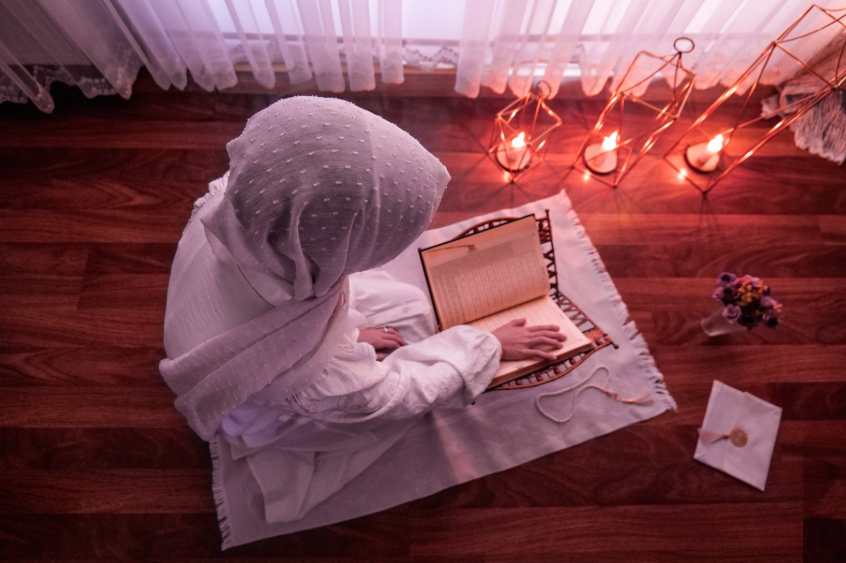
14 June, 2025
In Islam, purity is an essential part of faith. After menstruation, Muslim women are required to perform a full-body ritual purification known as ghusl before they can resume their daily prayers and other acts of worship. Understanding how to perform ghusl after period properly is crucial, as it is a fundamental part of maintaining both physical and spiritual cleanliness. This article provides a detailed, step-by-step guide on performing ghusl, along with essential tips and answers to common questions.
Ghusl (Arabic: غسل) is the Arabic term for full-body ritual purification. It is required in specific situations, including:
-
After menstruation (hayd)
-
After post-natal bleeding (nifas)
-
After sexual intercourse (janabah)
-
After wet dreams (ihtilam)
For women, ghusl after menstruation is obligatory before engaging in any religious activities like praying (Salah), fasting (Sawm), touching the Qur’an, or entering a mosque.
Islam emphasizes spiritual and physical cleanliness. The act of performing ghusl after a period:
-
Purifies the body from major ritual impurity.
-
Allows a woman to resume acts of worship.
-
Symbolizes a fresh start and renewal.
-
Is a form of obedience to Allah’s commandments as outlined in the Qur’an and Hadith.
Read More: Wudu Steps
Let’s go through the complete process of how to perform ghusl after period according to the Sunnah of Prophet Muhammad ﷺ.
Step 1: Make the Intention (Niyyah)
Every act of worship in Islam begins with intention.
-
Silently make the niyyah in your heart:
"I am performing ghusl to purify myself from menstruation for the sake of Allah."
There is no need to say this out loud; it is a matter of the heart.
Step 2: Say “Bismillah”
Before beginning any act, Muslims are encouraged to say:
بِسْمِ ٱللَّٰهِ (Bismillah) — "In the name of Allah"
Say it softly before starting the washing.
Step 3: Wash Your Hands Three Times
-
Use your right hand to pour water on the left.
-
Wash both hands up to the wrists three times.
-
This removes any dirt or impurities on your hands.
Step 4: Wash the Private Parts Thoroughly
-
Clean your private areas thoroughly with your left hand.
-
Make sure there is no trace of menstrual blood remaining.
-
Use soap or anything available that ensures cleanliness.
Step 5: Perform Wudu (Ablution)
-
Perform a complete wudu just like you do for prayer.
-
If you're in a bathroom and can't face Qiblah, it’s okay.
-
You can delay washing the feet until the end of ghusl if you are standing in an area where water accumulates.
Step 6: Pour Water Over the Head Three Times
-
Ensure the water reaches the roots of your hair.
-
Tilt your head and pour water starting from the right side, then the left, then the center.
-
It is not required to undo braids unless water cannot reach the roots.
Step 7: Wash the Whole Body
-
Start from the right side, then the left, and then the rest of the body.
-
Make sure water reaches every part:
-
Armpits
-
Inside the ears
-
Belly button
-
Between the fingers and toes
-
Back of the knees
-

-
Don’t forget areas like under the breasts or hairline.
Step 8: Wash the Feet (If Not Done Earlier)
If you delayed washing your feet in Wudu, now is the time to do so.
-
Wash both feet thoroughly.
-
Make sure water reaches between the toes.
Many women unknowingly make small errors while performing ghusl. Here are some to avoid:
-
Not ensuring that water reaches all parts of the body, especially the roots of hair or skin folds.
-
Skipping intention (niyyah).
-
Leaving impurities or traces of menstrual blood.
-
Using a towel to dry off before finishing the full ghusl.
-
Believing that hair must be untied completely (this is not obligatory unless water cannot reach the scalp).
No. Wudu is a part of ghusl. However, if you perform ghusl properly according to Sunnah (including washing the body and following the right order), then it includes wudu by default, and you don’t need to perform it separately unless you break your wudu afterward.
Read About: Nafl Prayers
Restores spiritual purity
Prepares you for acts of worship
Brings a sense of freshness and cleanliness
Fulfills an obligation commanded by Allah
Enhances your spiritual connection to God
The importance of ghusl is confirmed in several Islamic texts:
Qur’an (Surah Al-Ma’idah 5:6):
“...And if you are in a state of janabah (major impurity), then purify yourselves…”
Hadith (Sahih Muslim):
"When a woman is purified from her menses, she should take a bath and pray." (Muslim)
These evidences prove that ghusl after menstruation is a vital act of worship.

Q1: How long should ghusl take?
There's no fixed time. It depends on thoroughness. Usually, 10–15 minutes is sufficient.
Q2: Can I perform ghusl using a shower?
Yes. Modern showers are completely acceptable as long as water reaches every part of the body.
Q3: Is ghusl invalid if I forget to say “Bismillah”?
No, it’s still valid, but it’s better to say “Bismillah” as part of Sunnah.
Q4: Can I use soap or shampoo during ghusl?
Yes, but the essential part is making sure water reaches the whole body. Soap is optional.

